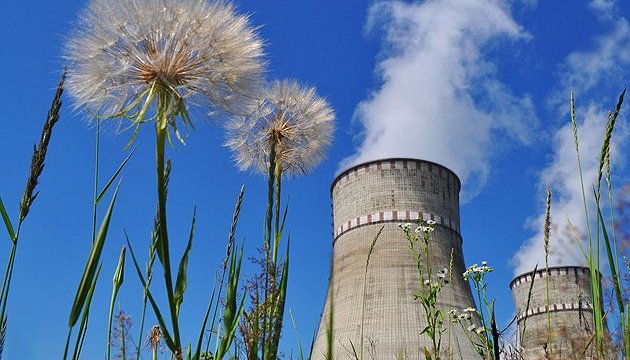UDC 553.311: 537.621 (477) • Issue 7 (35) / 2022 • 42-46pages
V. Verkhovtsev, V. Pokalyuk, V. Gubina, V. Snisar, T. Antonenko, G. Zemskov
Verkhovtsev V.G., D. Sc. (Geol.), Head of Department, State Institution «The Institute of Environmental Geochemistry of National Academy of Sciences of Ukraine», ORCID: 0000-0002-1015-6725, verkhovtsev@ukr.net
Pokalyuk V.V., D. Sc. (Geol.), Leading Researcher, State Institution «The Institute of Environmental Geochemistry of National Academy of Sciences of Ukraine», ORCID: 0000-0002-9282-0246,
Gubina V.G., PhD (Geol.), Leading Researcher, State Institution «The Institute of Environmental Geochemistry of National Academy of Sciences of Ukraine», ORCID: 0000-0001-7486-5451, gvg131619@gmail.com
Snisar V.P., PhD (Geol.&Min.), Head of the Department, State Institution «Institute of Geochemistry, Mineralogy and Ore Formation named after M.P. Semenenko of the National Academy of Sciences of Ukraine»
Antonenko T.S., PhD (Geol.), State Institution “Institute of Geochemistry, Mineralogy and Ore Formation named after M.P. Semenenko of the National Academy of Sciences of Ukraine”
Zemskov G.O., Researcher, State Institution «Institute of Environmental Geochemistry of the National Academy of Sciences of Ukrain»,
ORCID 0000-0002-7445-5329, zemskov-gennadii2020@gmail.com
Abstract
For ores subject to magnetic separation, the magnetic properties of minerals and ores are the main determinants of the technological process of enrichment. Changes in the magnetic characteristics of minerals and ores during grinding affect the efficiency of flotation, magnetic and electrostatic separation, filtration and other technological processes. The study of these changes in the processes of mineral processing is relevant for the improvement of rational schemes and methods of processing and integrated use of mineral resources. The main trend of changes in the magnetic properties of magnetite quartzites, which we record during grinding and a corresponding reduction of the grain size of minerals, is a gradual decrease in specific saturation magnetization due to crystal chemical changes. We refer to such changes as qualitative, because they definitely affect the result of the technological process – obtaining a concentrate with the maximum possible iron content. At the stage of wet beneficiation, significant qualitative changes in the magnetic properties take place: 1) a gradual decrease in the magnetization of the source ore during grinding in ball mills with subsequent separation into magnetic concentrate and nonmagnetic tails;2) the gradual decrease in the magnetization of magnetite aggregates as a result of disruption of its domain structure and partial oxidation with the formation of new mineral phases – magemite and hematite / martite. Due to multi-stage magnetic separation, mineral neoplasms – magemite and hematite / martite, as a rule get into the enrichment waste, which provides the opportunity to obtain a high-quality concentrate with maximum iron content. Along with the changes in magnetization, we recorded a natural gradual decrease in the Curie temperature of industrial products in the process of enrichment of ferrous quartzites.
Key words: ferruginous magnetite quartzites, magnetite, concentrate, «tails», magnetic properties, magnetization, Curie temperature
Article
Reference
1. Dean, R. S. and Davis, C. W. (1941), Magnetic Separation of Ores. U. S. Dept. of Interior. Bureau of mines. Bull. 425. Washington, 417 p.
2. Dotsenko, V.D., Vorobyov, A.N., Radchuk, A.G. (2013), Handbook on the physical and mechanical properties of ferruginous quartzites, products of their processing and other fine-grained materials. Dionysus: Krivoy Rog, 296 p.
3. Gubina, V.G., Kurochkin, G.M., Gubin, G.G., Korolenko, M.K. (2020), Magnetic properties of weakly magnetic minerals of iron quartzites of Kryvyi Rih basin, Geochemistry of technogenesis, Iss. 4: 58-64.
4. Karmazin, V.V., Karmazin,V.I. (1988), Magnetic and electrical methods of enrichment. Moscow, 304 p.
5. Nagata, T. (1956), Magnetism of rocks (translated from English). M., 226 p.
6. Pirogov, B.I. (1989), Ferro-siliceous formations of the Precambrian of the European part of the USSR. Mineralogy. Кyiv: Naukova dumka, 168 p.
7. Pirogov, B.I., Porotov, G.S., Kholoshin, I.V., Tarasenko, V.N. (1988), Technological mineralogy of iron ores. Leningrad: Nauka, 304 p.
8. Shvets, I.N. (1962), Dependence of the magnetic properties of powdered magnetite on grain size, Zapiski Ukr. Otdela Vsesoyuz. Miner. Ob-va. AN USSR, 140-145.
9. Shvets, I.N. (1963), Magnetic properties of ores of processing plants of Krivoy Rog, Sb. nauchnykh trudov Krivorozhskogo gornorudnogo in-ta, Iss. XVII, 201-208.
10. Utility model patent UA 94163 U. (2014), Device for express measurement of magnetization of ores and magnetic materials, State Intellectual Property Service of Ukrain, Bul.
No. 20.
11. Utility model patent UA 94514 U. (2014), Device for determining the Curie temperature and identification of magnetic minerals in ores and magnetic materials
